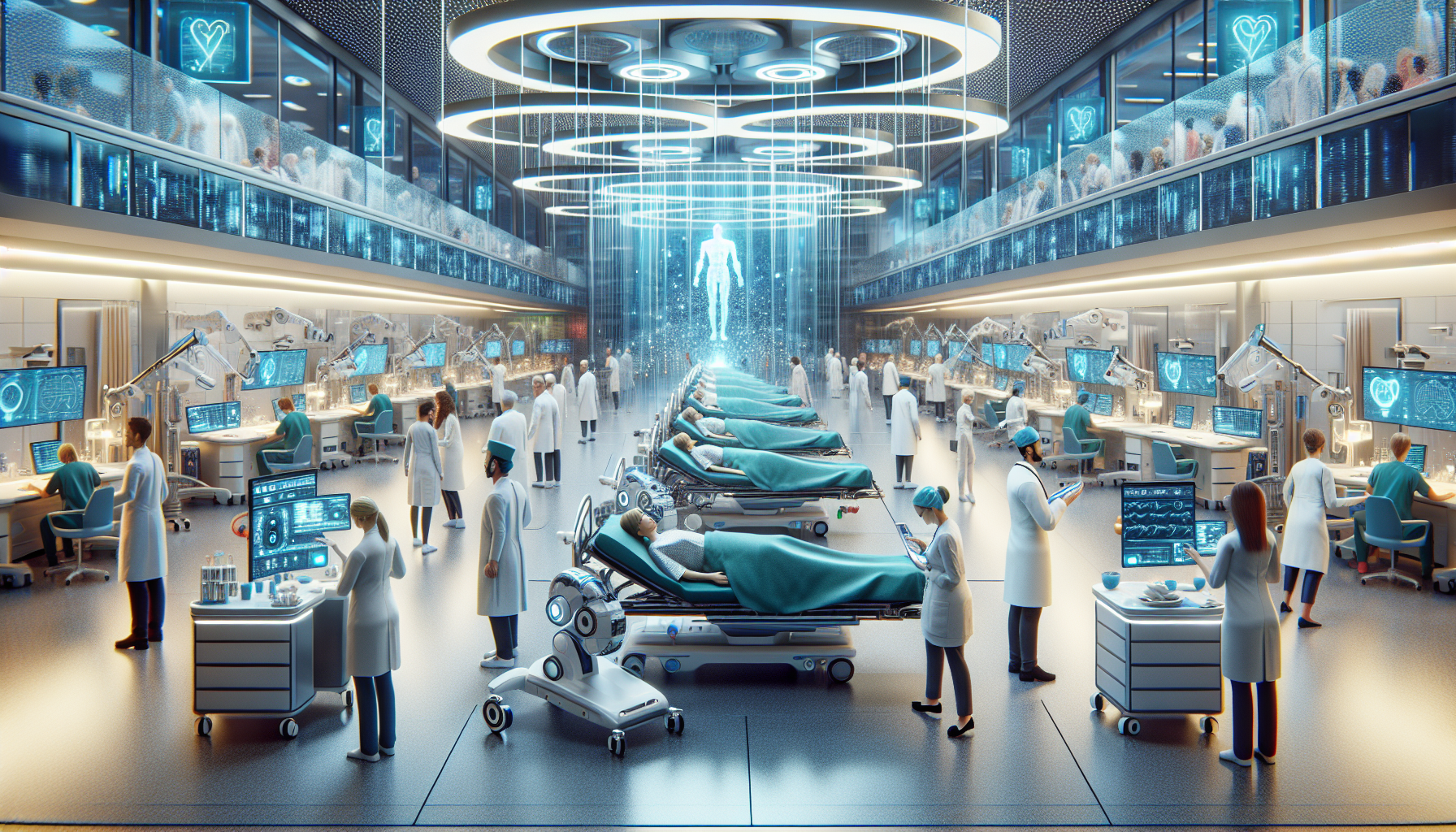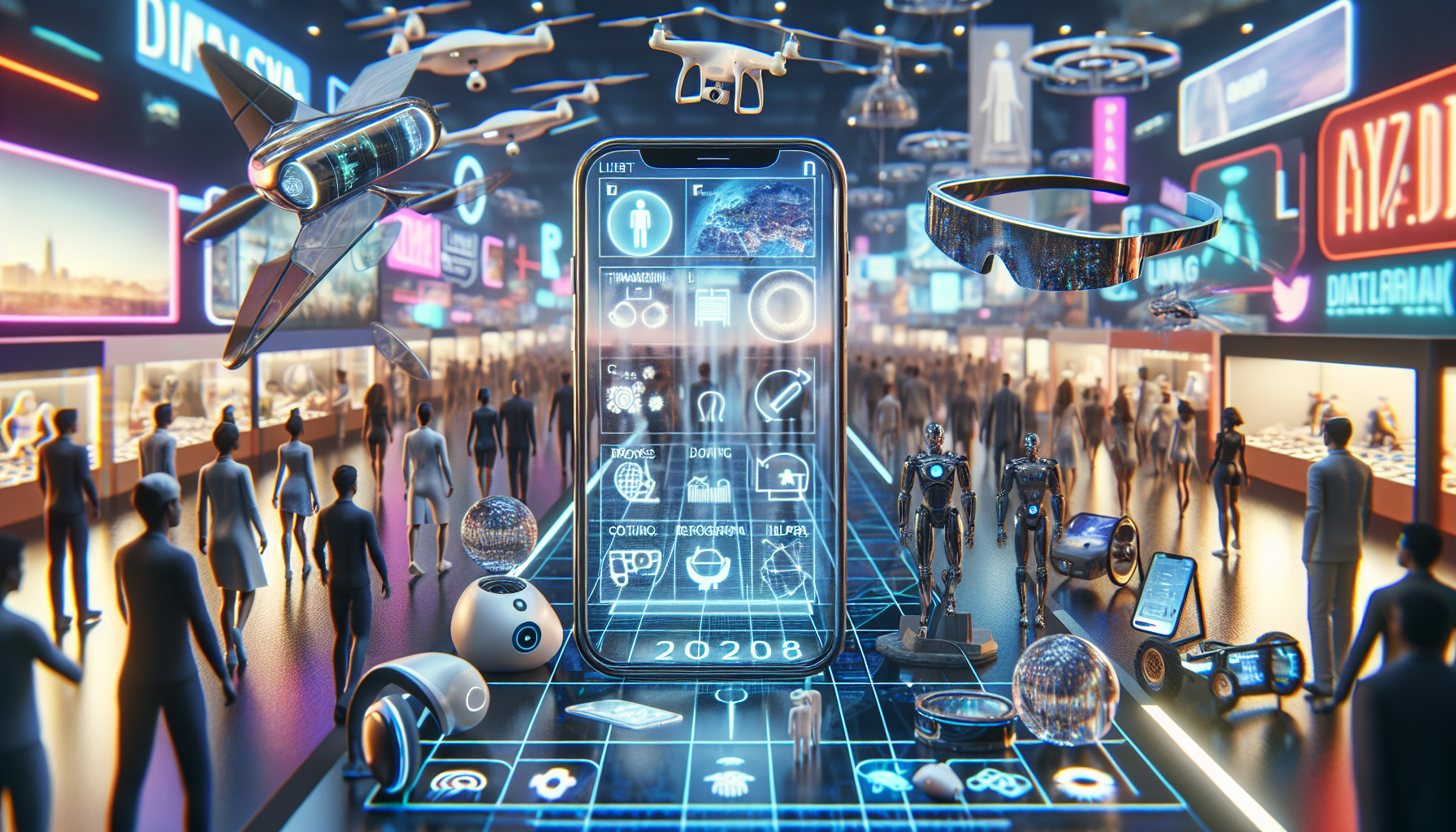Advertisements
Artificial intelligence has revolutionized many areas of society, and medicine is no different. AI in medicine has proven to be a powerful tool, capable of saving lives and significantly transforming the future of healthcare. With the advancement of technology, the use of algorithms and machine learning has become increasingly common in the diagnosis, treatment and prevention of diseases.
Advertisements
Artificial intelligence’s ability to process large amounts of data quickly and accurately has made it possible to identify patterns and trends that would otherwise go unnoticed by healthcare professionals. This has resulted in more accurate diagnoses, more effective treatments, and even the discovery of new ways to combat diseases previously considered incurable.
Furthermore, AI in medicine has also contributed to the personalization of patient treatment, taking into account genetic characteristics, medical history and lifestyle of each individual. This makes it possible to offer more individualized and efficient care, increasing the chances of successful treatments and reducing the risk of complications.
With the advancement of technology and investment in research in the area of artificial intelligence, the trend is for more and more hospitals and clinics to adopt this technology in their processes. AI in medicine not only has the potential to save lives, but also to reduce costs and make the healthcare system more efficient and accessible to everyone.
Advertisements
In light of this, it is important to closely monitor the advances and applications of artificial intelligence in medicine in order to understand how this technology can transform the health and well-being of the population. The AI revolution in medicine is already a reality, and the benefits it can bring are countless and promising for the future of healthcare.
The Importance of Artificial Intelligence in Medicine
The Artificial Intelligence (AI) revolution in medicine is transforming the future of healthcare in surprising ways. The technology is being used in a variety of ways to save lives, improve diagnoses, speed up treatments and revolutionize the way healthcare professionals work.
Accurate and Fast Diagnosis
AI has the ability to analyze large amounts of data much faster and more accurately than humans. This allows it to identify diseases earlier and with greater accuracy, improving the chances of treatment and cure. AI algorithms can analyze imaging tests, such as CT scans and MRIs, identifying patterns that might go unnoticed by the naked eye.
- Reduction of diagnostic errors;
- Identification of diseases in early stages;
- Improved effectiveness of treatments.
Treatment Personalization
With AI, medical treatments can be personalized according to the individual characteristics of each patient. Algorithms can analyze genetic data, medical history, and lifestyle to recommend more effective therapies with fewer side effects. This opens the door to precision medicine, where each patient receives unique and personalized treatment.
- Lower chance of adverse reactions;
- Better treatment effectiveness;
- Continuous adaptation based on patient response.

Given this scenario of advances and benefits provided by artificial intelligence in medicine, it is essential that healthcare professionals are always up to date and trained to deal with this new reality. Furthermore, it is important that there is continuous investment in research and development of new technologies, in order to further expand the possibilities of applying AI in the healthcare area. With the commitment and collaboration of all involved, we can expect a promising future, with more efficient, accessible healthcare systems capable of offering increasingly personalized and effective care to patients.
The evolution of artificial intelligence in medicine is a reflection of constant technological and scientific progress. With its ability to process data quickly and accurately, AI has proven to be a fundamental ally in the fight against diseases and in promoting health. The future of medicine will certainly be marked by the increasing integration of artificial intelligence in all aspects of health care, bringing previously unimaginable benefits. It is essential that health professionals and researchers are aware of the new possibilities and challenges that arise with this revolution, thus ensuring even more effective and personalized care for all patients. The partnership between technology and medicine promises to transform the health and well-being of society in an unprecedented way.
Conclusion
In short, the AI revolution in medicine is bringing countless benefits, from faster and more accurate diagnoses to personalized and effective treatments. AI’s ability to efficiently analyze large volumes of data and identify patterns that may go unnoticed by humans is enabling early detection of diseases, reducing diagnostic errors and improving the effectiveness of treatments. In addition, personalizing treatments based on each patient’s individual characteristics is opening the door to precision medicine, where each individual receives unique care tailored to their needs.
As technology advances, AI in medicine is saving lives and transforming the future of healthcare in extraordinary ways. It is crucial that healthcare professionals are open to incorporating this technology into their practices in order to provide more efficient and personalized care to patients. The AI revolution in medicine is a path of no return and promises to continue saving lives and improving people’s quality of life in the future.
Artificial Intelligence is becoming an indispensable ally in medicine, providing significant advances in various aspects of healthcare. By analyzing large volumes of medical data and identifying patterns invisible to the human eye, AI has been crucial in the early detection of diseases and reducing diagnostic errors. In addition, the personalization of treatments, taking into account the individual characteristics of patients, is making medicine more precise and effective. This technological advancement not only improves clinical results, but also offers a more humanized approach tailored to the needs of each patient, ensuring more efficient and safer care. The integration of AI in medicine is undoubtedly shaping the future of the sector, with great promise for transformation.




